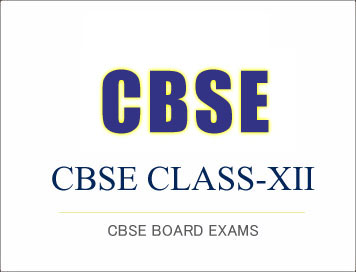(Download) CBSE Class-12 Sample Paper And Marking Scheme 2017-18 : Psychology
Disclaimer: This website is NOT associated with CBSE, for official website of CBSE visit - www.cbse.gov.in
(Download) CBSE Class-12 Sample Paper And Marking Scheme 2017-18 : Psychology
Psychology
Class- XII
Sample Question Paper – 2018
Time – 3 Hours
Max Marks – 70
General instructions
- All questions are compulsory and answers should be brief and to the point.
- Marks for each question are indicated against it.
- Question No 1- 10 in part A are multiple choice questions carrying 1 mark each. You are expected to answer them as directed.
- Question No 11-16 in Part B are very short answer questions carriying2 marks each. Answer to each question should not exceed 30 words.
- Question No. 17-20 in Part C are short answer type-I questions carrying 3 marks each. Answer to each question should not exceed 60 words.
- Question No. 21-26 in Part D are short answer type-II questions carrying 4 marks each. Answer to each question should not exceed 100 words.
- Question No. 27 and 28 in Part E are long answer type questions carrying 6 marks each. Answer to each question should not exceed 200 words.
Part – A
Q 1. Ritu is hardworking, committed and patiently works towards her
goal. She is said to be high on ––––––– competence.
a) Cognitive
c) Emotional
b) Entrepreneurial
d) Social
Q 2. An individual is rejected in a job interview, which he was very
eager to join. Now he claims his present job is better. He is
using__________:
a) Reaction Formation
b) Projection
c) Regression
d) Rationalisation
Q 3. The impact of any stressful event depends largely on the way we
interpret it. (True /False)
Q 4. A student thinks that he can complete the task effectively and achieve his goal. This is an example of:
a) Self efficacy
b) Self esteem
c) Self concept
d) Self control
Q 5. Sunil shows loss of interest in most of the activities, cannot sleep well at night, exhibits excessive guilt and loss of interest in activities that he would enjoy earlier. Sunil’s symptoms are akin to that of:
a) Somatoform Disorder c) Major depressive disorder
b) Obsessive compulsive disorder d) Generalised Anxiety Disorder
Q 6. The therapy that leads to cognitive restructuring has proved to be successful in the treatment of _______________________.
a) Depression and mania
b) Schizophrenia
c) Phobias
d) Anxiety and depression
Q7. When an individual changes in a direction opposite to the existing attitude, it is called incongruent attitude change (True/ False)
Q 8. Values refer to the cognitive component of attitudes, and form the ground on which attitudes stand, like belief in the Supreme Being. (True/ False)
Q 9. ‘Perceiving or thinking that one has got less than what one should get’ refers to __________.
Q 10. A ____________ is a purposeful conversation between two or more people that follows a basic question and answer format.
Part – B
Q 11. What are the characteristics that comprise positive health?
Q. 12. Differentiate between surface and source traits.

